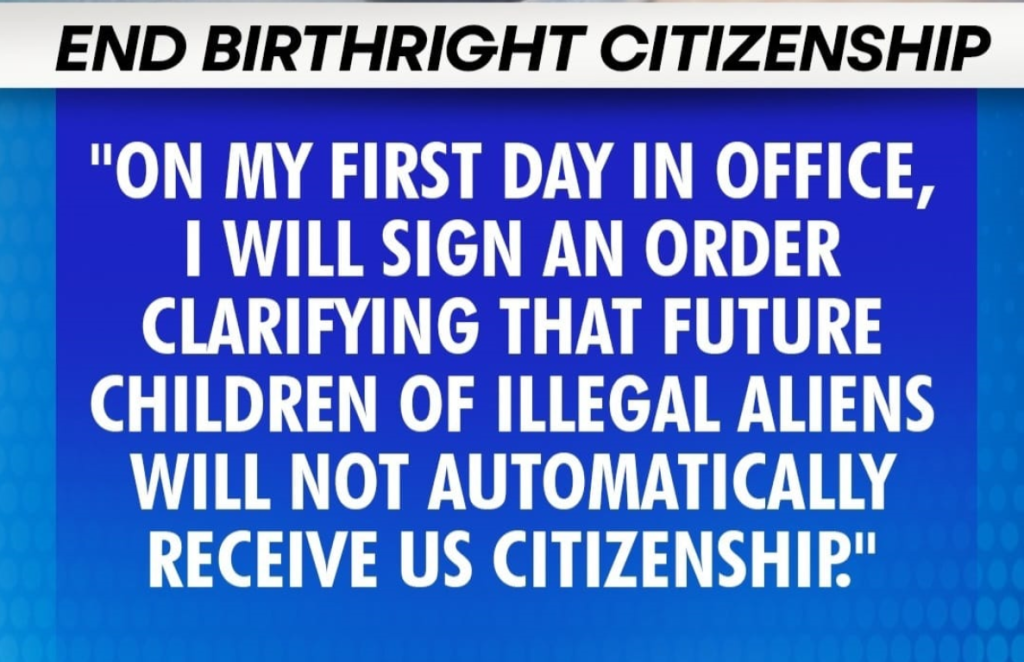Editorial
Donald Trump 2.0: The Challenges of Ending Birthright Citizenship
On Inauguration Day on January 20, 2025, President Donald Trump signed an executive order that aims to end birthright citizenship—a policy enshrined in the 14th Amendment to the United States Constitution. This move has ignited a contentious debate, with various stakeholders weighing in on the potential implications for American society and the judicial system. While the intent behind the order may resonate with some, the legal hurdles it faces are monumental, suggesting that the likelihood of its actualization is slim.
The 14th Amendment, ratified in 1868, was designed to ensure that all individuals born on U.S. soil are granted citizenship, a principle that has become a cornerstone of American identity. The language is clear: “All persons born or naturalized in the United States, and subject to the jurisdiction thereof, are citizens of the United States.” Attempts to circumvent this constitutional guarantee through executive action raise serious questions about the separation of powers, a fundamental principle that underpins the American legal system.
One of the primary challenges to Trump’s executive order lies in its constitutionality. Any attempt to modify or eliminate birthright citizenship would likely require a constitutional amendment rather than a mere executive order. The process for amending the Constitution is deliberately rigorous, requiring either a two-thirds majority in both houses of Congress or ratification by three-fourths of the state legislatures. Given the current political climate, where divisions run deep, achieving such consensus appears highly improbable.

Furthermore, legal experts predict a swift and robust response from civil rights organizations, many of which have vowed to challenge the executive order in court. This would likely lead to a protracted legal battle that could ultimately reach the Supreme Court. Historical precedent suggests that the Court has upheld the principles of birthright citizenship, viewing them as essential to individual rights and equality. A ruling against the executive order could reaffirm the sanctity of the 14th Amendment and reinforce the judiciary’s role as a protector of constitutional rights.
However, the possibility of this executive order being realized cannot be entirely dismissed. Should the political landscape shift—perhaps through increased support from Congress or a change in judicial philosophy—there may be a pathway for the order to gain traction. Factors such as growing anti-immigration sentiment, the framing of citizenship as a privilege rather than a right, and a potential overhaul of the judicial system could create an environment where this executive order is not only debated but implemented.
The concern that the U.S. judicial system could become compromised is a legitimate one. If the executive order were to be upheld, it would set a dangerous precedent for the executive branch to unilaterally alter constitutional protections. Such an action might lead to further encroachments on civil liberties, raising alarms about the potential erosion of constitutional rights.
Moreover, the potential jettisoning of the 14th Amendment speaks to a larger existential crisis regarding American identity. What does it mean to be a citizen in the United States? The principles of equality and inclusion have historically defined the nation. Abandoning birthright citizenship risks fracturing this identity, leading to a more divisive and exclusionary society.
In conclusion, while the executive order to end birthright citizenship reflects a significant political stance, the legal challenges it faces are formidable. The 14th Amendment stands as a bulwark against such unilateral action, and the U.S. judicial system is poised to uphold its principles. Americans must remain vigilant in the face of efforts that seek to redefine citizenship and challenge the foundational tenets of equality that have long defined our nation. The fight to protect birthright citizenship is not merely a legal battle; it is a struggle for the soul of America. God’s own country.